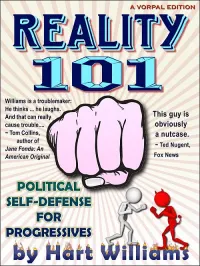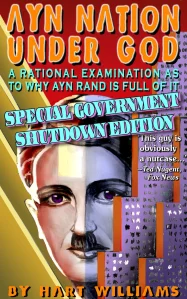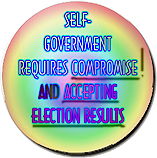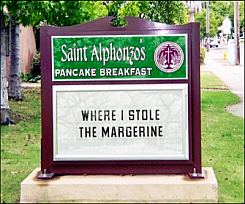
You have this amazing writing service that your taxes have paid for and to which, as a result, you have a permanent subscription. I’ll tell you what it is in a moment, but first, listen to the clueless Authoritarians:
John Kelly is not pleased with Trump’s NFL culture war, but ‘appalled’ by players’ lack of respect
Washington (CNN) White House chief of staff John Kelly was not pleased with the fight that erupted over the weekend between President Donald Trump and National Football League players who protest by kneeling during the national anthem, two administration officials told CNN…. In a brief interview Monday evening, Kelly told CNN he is “appalled” by what he sees as a lack of respect for the flag and national anthem.
“I believe every American, when the national anthem is played, should cover their hearts and think about all the men and women who have been maimed and killed,” Kelly said. “Every American should stand up and think for three lousy minutes.”
Now, here’s what that subscription service says to General Kelly:
“As governmental pressure toward unity becomes greater, so strife becomes more bitter as to whose unity it shall be. Probably no deeper division of our people could proceed from any provocation than from finding it necessary to choose what doctrine and whose program public educational officials shall compel youth to unite in embracing. Ultimate futility of such attempts to compel coherence is the lesson of every such effort from the Roman drive to stamp out Christianity as a disturber of its pagan unity, the Inquisition, as a means to religious and dynastic unity, the Siberian exiles as a means to Russian unity, down to the fast failing efforts of our present totalitarian enemies. Those who begin coercive elimination of dissent soon find themselves exterminating dissenters. Compulsory unification of opinion achieves only the unanimity of the graveyard.”
Supreme Court of the United States
319 U.S. 624
West Virginia State Board of Education v. Barnette (No. 591)
Argued: March 11, 1943
Decided: June 14, 1943
The flag is a symbol, and the Supreme Court has always held that it is symbolic expression and speech, even when burnt.
Now listen to one of the greatest concurrences in the history of the Supreme Court, from Justice Kennedy on flag burning:
491 U.S. 397
Texas v. Johnson (No. 88-155)
Argued: March 21, 1989
Decided: June 21, 1989
Syllabus
During the 1984 Republican National Convention, respondent Johnson participated in a political demonstration to protest the policies of the Reagan administration and some Dallas-based corporations. After a march through the city streets, Johnson burned an American flag while protesters chanted. No one was physically injured or threatened with injury, although several witnesses were seriously offended by the flag burning. Johnson was convicted of desecration of a venerated object in violation of a Texas statute, and a state court of appeals affirmed. However, the Texas Court of Criminal Appeals reversed, holding that the State, consistent with the First Amendment, could not punish Johnson for burning the flag in these circumstances. The court first found that Johnson’s burning of the flag was expressive conduct protected by the First Amendment. The court concluded that the State could not criminally sanction flag desecration in order to preserve the flag as a symbol of national unity. It also held that the statute did not meet the State’s goal of preventing breaches of the peace, since it was not drawn narrowly enough to encompass only those flag burnings that would likely result in a serious disturbance, and since the flag burning in this case did not threaten such a reaction. Further, it stressed that another Texas statute prohibited breaches of the peace and could be used to prevent disturbances without punishing this flag desecration.
Held: Johnson’s conviction for flag desecration is inconsistent with the First Amendment. Pp. 402-420.
Concurrence *
KENNEDY, J., Concurring Opinion
JUSTICE KENNEDY, concurring.
I write not to qualify the words JUSTICE BRENNAN chooses so well, for he says with power all that is necessary to explain our ruling. I join his opinion without reservation, but with a keen sense that this case, like others before us from time to time, exacts its personal toll. This prompts me to add to our pages these few remarks.
The case before us illustrates better than most that the judicial power is often difficult in its exercise. We cannot here ask another Branch to share responsibility, as when the argument is made that a statute is flawed or incomplete. For we are presented with a clear and simple statute to be judged against a pure command of the Constitution. The outcome can be laid at no door but ours.
The hard fact is that sometimes we must make decisions we do not like. We make them because they are right, right [p421] in the sense that the law and the Constitution, as we see them, compel the result. And so great is our commitment to the process that, except in the rare case, we do not pause to express distaste for the result, perhaps for fear of undermining a valued principle that dictates the decision. This is one of those rare cases.
Our colleagues in dissent advance powerful arguments why respondent may be convicted for his expression, reminding us that among those who will be dismayed by our holding will be some who have had the singular honor of carrying the flag in battle. And I agree that the flag holds a lonely place of honor in an age when absolutes are distrusted and simple truths are burdened by unneeded apologetics.
With all respect to those views, I do not believe the Constitution gives us the right to rule as the dissenting Members of the Court urge, however painful this judgment is to announce. Though symbols often are what we ourselves make of them, the flag is constant in expressing beliefs Americans share, beliefs in law and peace and that freedom which sustains the human spirit. The case here today forces recognition of the costs to which those beliefs commit us. It is poignant but fundamental that the flag protects those who hold it in contempt.
For all the record shows, this respondent was not a philosopher and perhaps did not even possess the ability to comprehend how repellent his statements must be to the Republic itself. But whether or not he could appreciate the enormity of the offense he gave, the fact remains that his acts were speech, in both the technical and the fundamental meaning of the Constitution. So I agree with the Court that he must go free.
* A ‘concurrence’ in law means, in essence, ‘I agree, and here’s WHY,’ (And usually, to make a distinction or a difference, as in ‘I agree, but,’ or ‘I agree and here’s some more stuff I want to get off my judicial chest,’ etc. Concurrences can be given as hints to lawyers as to how to attack this decision, how to improve it, or ‘Why I am Antonin Scalia and even though I agree, they’re all full of crap anyway.’ (The last has ceased in practice, as far as we know.)
The answer to General Kelly’s statement, and the SCHOOLBOY LESSON that Donald Trump needs to learn from this is very neatly stated:
Though symbols often are what we ourselves make of them, the flag is constant in expressing beliefs Americans share, beliefs in law and peace and that freedom which sustains the human spirit. The case here today forces recognition of the costs to which those beliefs commit us. It is poignant but fundamental that the flag protects those who hold it in contempt.
If you really believe in what the flag stands for, you don’t demand that it be worshipped.
Unless you also would like to hasten the unanimity of the grave.
Courage.




















Pingback: Is disgraced former Judge Roy Moore clue-challenged? | his vorpal sword